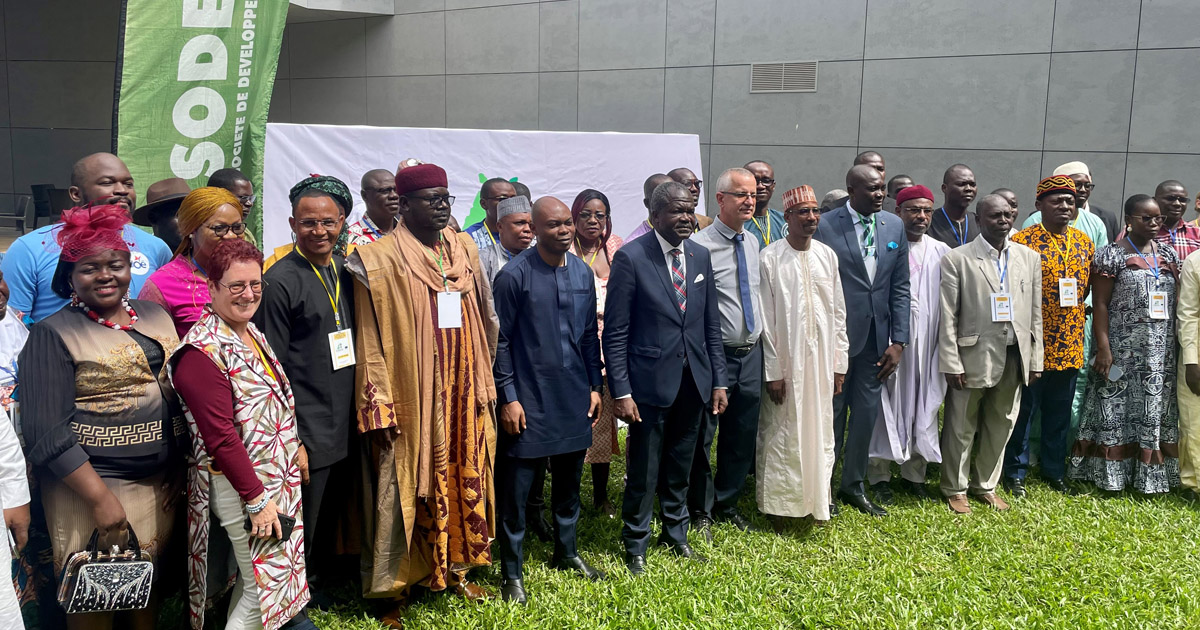
A new programme was launched today to build the resilience of Cameroon’s three northern regions, in the face of demographic pressure and food crises that are being exacerbated by insecurity and climate change. Entitled Cameroun: Septentrion Vert et Résilient (CaSeVe), the programme opened with an official ceremony at the Hôtel le Ribadou in Garoua in the country’s North Region.
This five-year initiative (2023-2028), funded by the European Union, covers three key landscapes: Logone Valley in the Far North Region, and West and East Benoue, which sit mainly in the North Region with extensions into the Adamawa Region. The initiative will be divided into three components, each of which will be led by a consortium of international research institutions and organisations.
The Centre for International Forestry Research and World Agroforestry (CIFOR-ICRAF), the Observatoire des Forêts d’Afrique Centrale (OFAC), and Care International will oversee Component One, entitled ‘Cameroun Septentrion Vert – Gouvernance Territoriale Intégrée (CaSeVe – GTI)’, which aims to consolidate decentralized governance and coordinate the many initiatives of the members of the Team Europe Initiative (TEI).
The Agence Française de Développement (AFD), the Programme de Consolidation et de Pérennisation du Conseil Agropastoral (PCP-ACEFA), the Programme d’Appui à la rénovation et au développement de la formation professionnelle dans les secteurs de l’agriculture, de l’élevage et de la pêche (PCP-AFOP) and the Société de développement du coton du Cameroun (SODECOTON) oversee Component Two, ‘Cameroon Septentrion Vert – Adaptation of the agro-sylvo-pastoral sectors (CaSeVe – C2)’, which aims to promote intelligent agro-sylvo-pastoral management in the face of climate change and the increasing scarcity of land suitable for pastoral activities.
The last component, ‘Cameroun Septentrion Vert – Gestion des territoires et des ressources naturelles (CaSeVe – C3) », involves the African Wildlife Foundation (AWF), NOE, and Conserve Global. It aims to support private and public conservation stakeholders in the protection and enhancement of hunting zones and national parks where they are functional, and to identify and then support organisations capable of taking over the management of protected areas that are currently non-functional or in serious difficulty.
The launch was held under the patronage of the Governor of the Northern Region and was well attended by the presidents of the region’s councils, representatives of the decentralised services of the public administration, international research and development organisations, traditional and communal authorities, and many other stakeholders in the programme.
The programme is expected to produce several key results, including:
- Land-use zoning and management decisions in the northern regions are more informed, inclusive, transparent, and respected by the various categories of stakeholders.
- Degraded lands in the communes supported by the project are restored.
- The natural heritage in the northern regions is better protected.
« We are very pleased to have organised this ceremony with the other organisations, which officially marks the launch of all the planned activities. We are very confident in the CaSeVe programme, and we will do our best to ensure that it produces concrete results », said Ann Degrande, CIFOR-ICRAF country coordinator for Cameroon, during the launch.
Contact: Laurianne Gilda Mefan (m.gilda@cifor-icraf.org)













